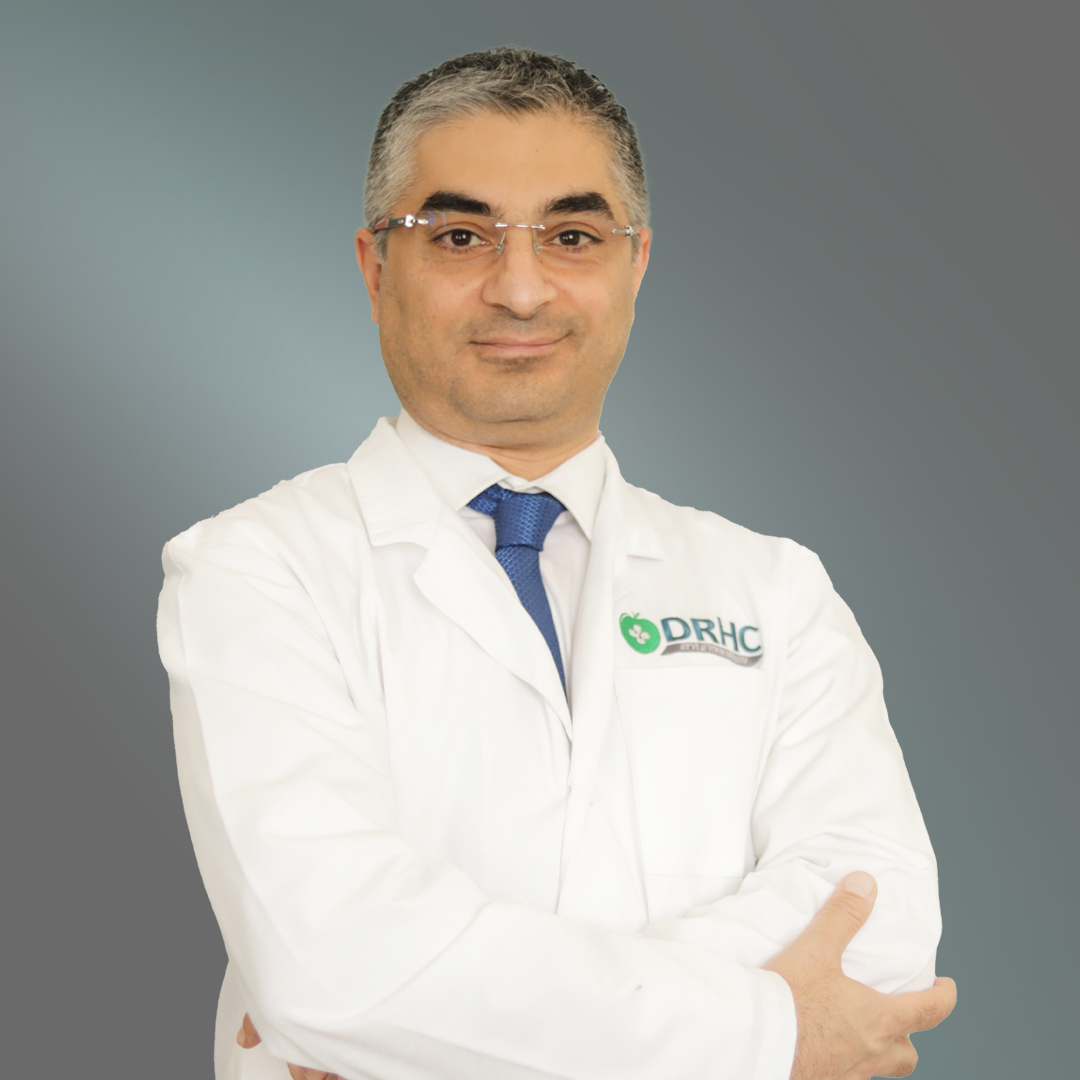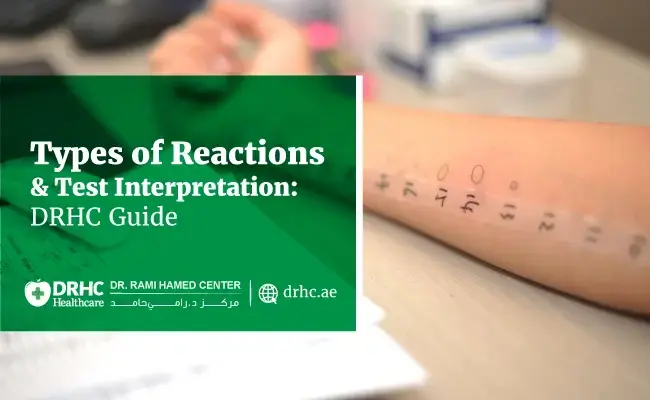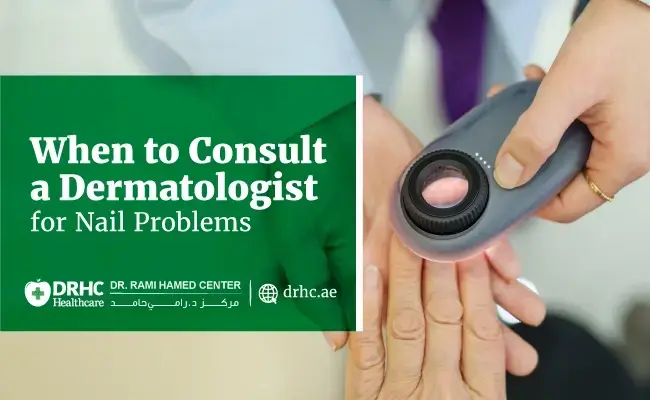
Fungal skin infections are one of the most common skin problems seen in Dubai, especially with the region’s warm and humid climate. They can cause itching, redness, and irritation—symptoms that can interfere with your comfort and confidence.
While some people try home remedies or over-the-counter creams, others turn to medical professionals for lasting relief. At Dr. Rami Hamed Center (DRHC) in Dubai, we often see patients who have struggled for months with recurrent fungal infections that home care alone couldn’t resolve.
This guide will help you understand the difference between home care and clinical treatments—so you can make the best choice for your skin.
Understanding Fungal Skin Infections
Fungal infections occur when fungi—tiny organisms that thrive in warm, moist environments—overgrow on the skin. Common examples include:
- Ringworm (Tinea corporis) – red, circular rashes on the body
- Athlete’s Foot (Tinea pedis) – itching or peeling between the toes
- Jock Itch (Tinea cruris) – rashes in the groin area
- Fungal Nail Infections – thick, discolored, or brittle nails
In Dubai’s climate, where heat and humidity are common, these infections can easily spread and recur—especially if not treated properly.
Home Care for Fungal Skin Infections
It’s understandable to want to try simple home solutions first. Many patients hope that creams or natural remedies will clear the infection quickly. While home care can help manage mild cases, it often falls short in more persistent or deep infections.
Common Home Remedies & Practices
- Keeping the skin clean and dry helps prevent fungal growth.
- Using antifungal creams or powders – available over the counter for mild infections.
- Wearing loose, breathable clothing reduces moisture buildup.
- Avoiding shared towels or footwear helps prevent reinfection.
Limitations of Home Care
- Over-the-counter products may not target the exact type of fungus causing the infection.
- Incomplete treatment can lead to recurrence.
- Some “natural” remedies found online may irritate the skin or worsen the condition.
If symptoms persist for more than a week or spread to other areas, it’s best to seek professional care at DRHC Dubai for proper diagnosis and treatment.
When to Seek Clinical Treatment
At Dr. Rami Hamed Center, dermatologists use specialized tools and medical-grade treatments to accurately diagnose and eliminate fungal infections. Clinical treatments go beyond symptom relief—they target the root cause.
1. Accurate Diagnosis
Through skin tests or fungal cultures, specialists can identify the exact type of fungus involved. This helps select the most effective medication.
2. Prescription Medications
Depending on the infection’s severity, doctors may prescribe:
- Topical antifungal creams or lotions for mild cases.
- Oral antifungal tablets for deeper nail infections.
- Anti-inflammatory medications if the skin is severely irritated.
3. Advanced Laser Therapy
For stubborn cases, especially nail fungus, laser therapy is a safe and effective option. It destroys fungal cells beneath the surface without harming surrounding skin.
4. Personalized Prevention Plan
At DRHC Dubai, treatment includes guidance on hygiene and lifestyle habits to prevent reinfection—something home care alone cannot provide.
Why Choose Clinical Treatment in Dubai
Dubai’s environment can make fungal infections harder to manage without medical guidance. Here’s why professional treatment at DRHC Dubai is often more effective:
- Faster results through targeted medications
- Reduced recurrence with tailored prevention plans
- Expert monitoring to ensure the infection clears completely
- Safe, modern treatments like laser therapy for resistant cases
With medical supervision, you can avoid unnecessary frustration and prevent the infection from spreading or worsening.
FAQs About Fungal Skin Infections
1. Can home remedies cure fungal infections completely?
Mild infections may improve temporarily, but deeper or widespread infections often need prescription medication to clear fully.
2. How long does clinical treatment take?
Most mild infections resolve in 1–3 weeks, while nail or scalp infections may take several months depending on severity.
3. Are fungal infections contagious?
Yes. They can spread through direct contact or by sharing personal items like towels or shoes.
4. Can humidity in Dubai worsen fungal infections?
Absolutely. The combination of heat and sweat provides the perfect environment for fungi to thrive.
5. When should I see a dermatologist at DRHC Dubai?
If symptoms last more than a week, spread, or return after treatment, it’s time for a professional evaluation.
Conclusion
While home care plays an important role in prevention and early management, clinical treatments offer long-term, reliable results—especially for recurring or stubborn fungal infections.
At Dr. Rami Hamed Center (DRHC) in Dubai, our dermatologists provide accurate diagnosis, advanced treatment options, and personalized advice to help you achieve healthy, clear skin.
If you’re struggling with a fungal infection that isn’t improving, book a consultation today at DRHC Dubai to receive safe, effective, and lasting care.
📞 Call / WhatsApp: +97142798200
📍 Visit Us: Dr Rami Hamed Center, Dubai Healthcare City
🌐 Website: www.drhc.ae
Topic: Dermatology









Leave a comment